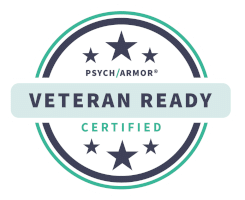Home | Treatment | What We Treat | Schizophrenia and Other Psychotic Disorders
What We Treat
Schizophrenia + Other Psychotic Disorders
Psychotic disorders like schizophrenia and schizoaffective disorder interfere with the way a person thinks and behaves, causing them to struggle to discern reality from false perceptions and beliefs.
Treatment for psychotic disorders at Pasadena Villa
Individuals with schizophrenia and schizoaffective disorder typically respond quickly to antipsychotic drugs. For some, however, symptoms may persist despite proper medication.
At Pasadena Villa, we treat individuals with psychotic disorders with the most advanced evidence-based methods available. Our individualized treatment plans provide clients with the education and tools to help them achieve the highest levels of functioning and independence once they assimilate into everyday life.
Defining schizophrenia & other psychotic disorders
Schizoaffective disorder and schizophrenia are both thought disorders characterized by psychosis, a condition that causes difficulty with perceiving reality as it is. These disorders interfere with the way a person behaves, thinks, and feels, often resulting in the individual developing persistent delusions about themselves or others. The exact cause of schizoaffective disorder or schizophrenia is unknown, but genetics, brain chemistry, stress, and psychoactive drugs may all play a role.
Approximately 3% of Americans will experience psychosis at some time in their lives.
- National Institutes of Health
FAQs
Questions about schizophrenia
What is schizophrenia?
A serious brain disorder, schizophrenia interferes with the way a person behaves, thinks, and feels, often resulting in false, delusional beliefs. Onset usually occurs from the late teens to the twenties.
What are the signs and symptoms of schizophrenia?
Schizoaffective disorder and schizophrenia typically include a cluster of symptoms, some of which overlap with other mental illnesses (like depression or bipolar disorder).
Common symptoms include:
- Hallucinations
- Delusions
- Disorganized thinking — a person may switch very quickly from one topic to another or give completely unrelated answers
- Feelings of sadness, emptiness, or worthlessness
- Depression symptoms
- Manic behavior (euphoria, racing thoughts, increased risky behavior)
Due to the range of severity of schizophrenia or schizoaffective symptoms, some of which can be debilitating or dangerous, it’s important to seek professional treatment.
When should you seek treatment for schizophrenia?
It’s important to seek treatment for schizophrenia or another psychotic disorder as soon as signs of psychosis begin to appear. Early intervention — including treatment with appropriate medications and personalized therapy — can help make these conditions easier to manage.
Pasadena Villa
Our Levels of Care
From residential treatment to partial hospitalization and intensive outpatient programs, our comprehensive continuum of care meets individuals at every stage of their recovery journey.
Take the first step toward recovery.
Our admissions experts are here to answer your questions and help you begin the process.
Explore our locations or fill out our contact form today.
Your privacy is our priority. All communication is completely confidential.




